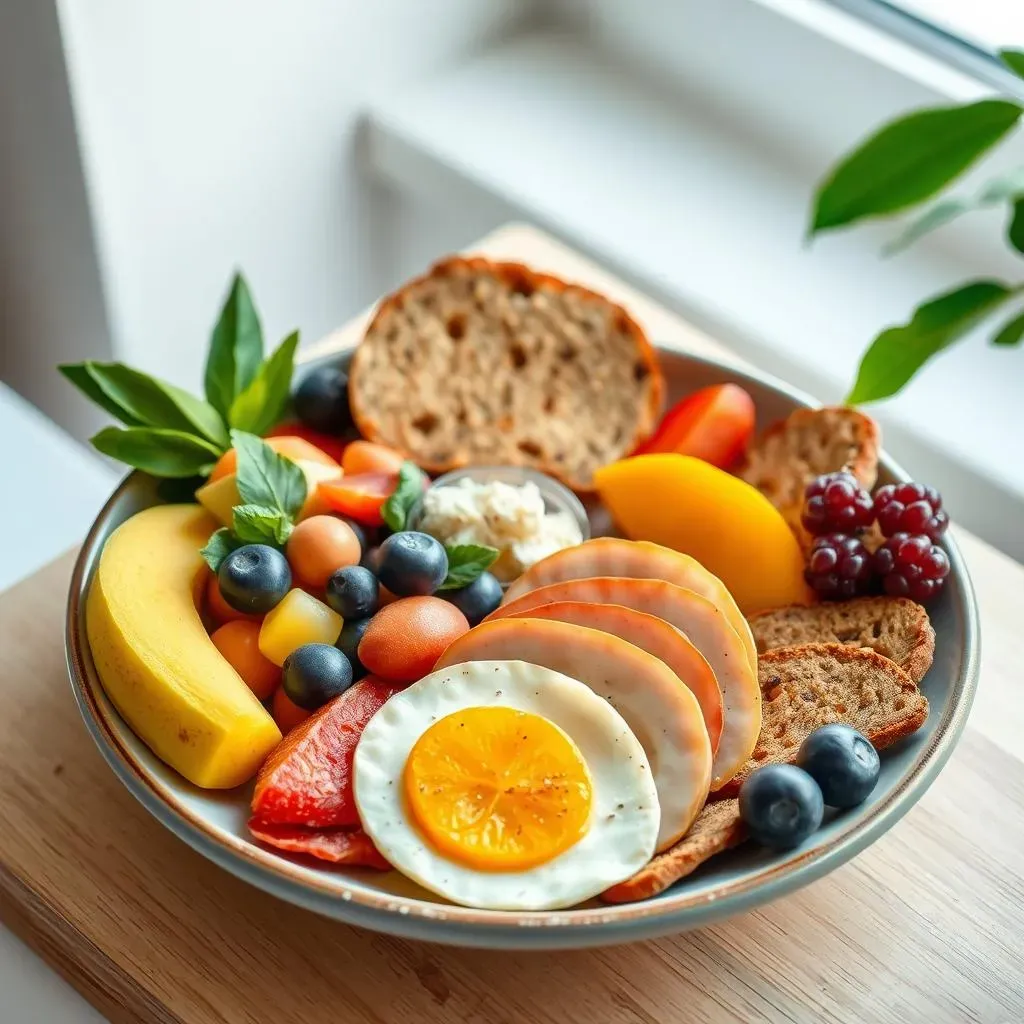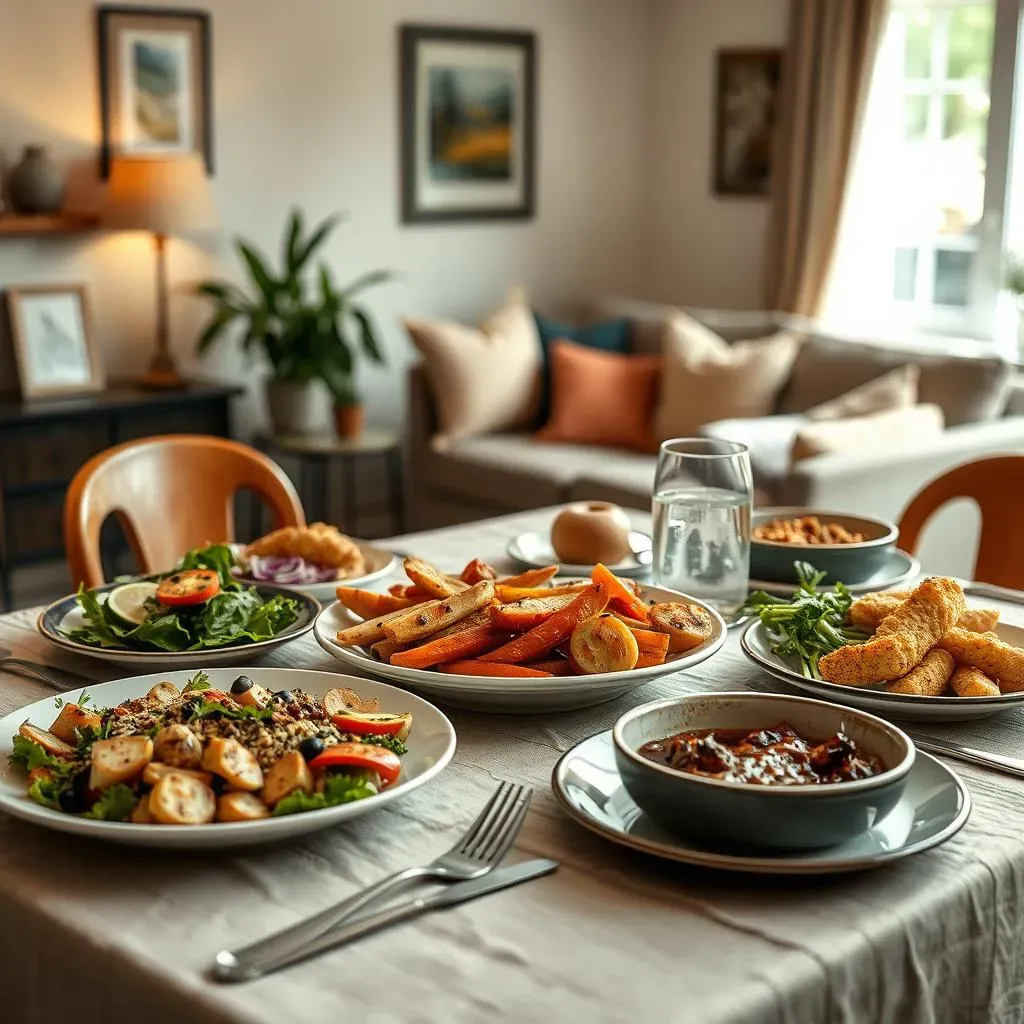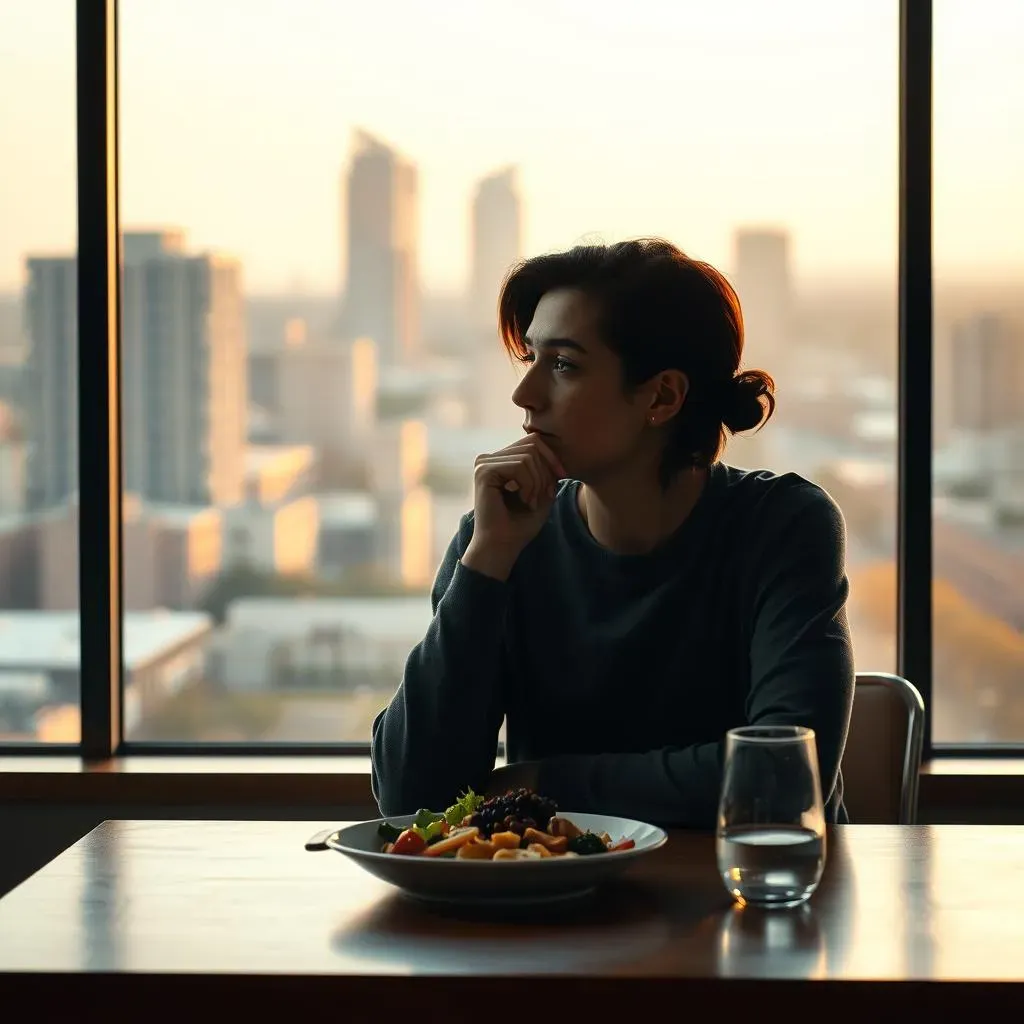Table of Contents
Ever find yourself staring at the clock, wondering, "When is a healthy time to eat dinner?" It's a question many of us grapple with, especially as life gets busier. We often hear about the importance of breakfast, but what about the evening meal? Does it even matter when we eat our last meal of the day? Well, it turns out, it does. The timing of your meals, especially dinner, can significantly impact your health, from how well you sleep to how easily you maintain a healthy weight. This article will break down the science behind meal timing, exploring the best times for breakfast, lunch, and those in-between snacks. We'll zero in on why eating dinner earlier might be a game-changer, and we'll even touch on the idea of time-restricted eating. By the end, you'll have a solid understanding of how meal timing can work for you, so you can make informed choices about when to enjoy your next meal.
What's the Best Time to Eat Dinner?

What's the Best Time to Eat Dinner?
so you're wondering about the best time to eat dinner, right? It's not as simple as just picking a random hour. Turns out, when you eat can be just as important as what you eat. Think of your body like a well-oiled machine; it needs fuel at the right times to run smoothly. Eating dinner too late? That’s like trying to fill up your car’s gas tank after you've parked it for the night, it just doesn't make much sense. Studies have shown that eating later in the day is linked to a higher risk of weight gain. I remember this one time, I was on a late schedule, and I was eating dinner around 10pm. My sleep was terrible, and I was always feeling sluggish. It wasn't until I started eating earlier that I started to feel a real difference. So, the short answer is, it's best to eat dinner a few hours before bedtime, but we will get into more details.
Optimal Meal Timing: Breakfast, Lunch, and Snacks

Optimal Meal Timing: Breakfast, Lunch, and Snacks
Breakfast: Fueling Your Morning
so you've heard breakfast is the most important meal, right? It's not just some old saying. It's about getting your body going after a night of rest. When you wake up, your body's been fasting for hours, and it needs a good kickstart. Think of breakfast as the first log you throw on the fire to get it burning. Registered dietitian Julia Zumpano suggests aiming for breakfast within an hour to an hour and a half after waking up. I know, it's hard when you're rushing, but trust me, it makes a difference. And it’s not just about grabbing any old thing. You want to focus on protein – think eggs, yogurt, or even some lean meat – paired with fiber-rich foods like whole-grain toast or fruit. It's like giving your body the perfect mix of fuel to keep you going strong.
Lunch: Midday Recharge
Next up, let's talk about lunch. You know that afternoon slump? That's often because you're running low on fuel. Lunch should be about four to six hours after breakfast, depending on when you had your first meal. It's your chance to refuel and keep your energy levels stable. Similar to breakfast, you want to focus on protein and fiber. A salad with grilled chicken, a sandwich on whole-wheat bread with some turkey, or leftovers from a healthy dinner are great options. I used to just grab whatever was quick and easy, usually something processed, and I’d feel so tired in the afternoon. When I switched to a balanced lunch, it was like night and day. The key is to make it substantial enough to hold you over until dinner without leaving you feeling sluggish or overstuffed.
Meal | Ideal Time | Focus |
|---|---|---|
Breakfast | 1-1.5 hours after waking up | Protein and Fiber |
Lunch | 4-6 hours after breakfast | Protein and Fiber |
Snacks: The In-Between Bites
Now, let's chat about snacks. Do you really need them? Not always. If you're eating balanced meals at the right times, you might not need much in between. But, let's be real, sometimes you get hungry. The key is to choose healthy snacks that actually help, not hurt. Think fruits, nuts, or a small portion of yogurt. I used to reach for chips or cookies, and it always made me feel worse. So, if you need a little something to tide you over, make it a smart choice. But if you can make it to your next meal without snacking, that's even better. It's all about listening to your body and not just eating out of boredom or habit.
The Importance of an Early Dinner for Better Health

The Importance of an Early Dinner for Better Health
Why Early Dinners Aid Digestion
let's talk about dinner, and why eating it earlier is a big deal. When you eat late, your body is trying to digest food while you're also trying to sleep. It's like asking your stomach to run a marathon right before bedtime – not ideal. Eating earlier gives your body more time to digest properly, which means less bloating and discomfort when you're trying to get some shut-eye. I used to think it didn't matter, but I'd end up tossing and turning with heartburn. Now, I aim for dinner at least three hours before bed, and it's made a world of difference. It's all about giving your digestive system a break before you call it a night. Think of it as letting the kitchen crew clean up before the restaurant closes.
Better Sleep, Better Health
So, you've got your digestion sorted, but what about sleep? Eating late can really mess with your sleep cycle. Your body's natural rhythm is to wind down at night, not to be working hard digesting food. When you eat a big meal close to bedtime, it can lead to restless sleep, and you might even wake up feeling groggy. I've noticed that when I eat earlier, I fall asleep easier and wake up feeling more refreshed. It’s like my body has had time to process the food and is ready to rest. Plus, better sleep means a better mood, more energy, and a stronger immune system. It all adds up to a healthier you. It's not just about the time you spend in bed, but also the quality of that rest.
Benefit of Early Dinner | How it Helps |
|---|---|
Improved Digestion | Less bloating, heartburn, and discomfort |
Better Sleep | Easier to fall asleep, more restful sleep |
Weight Management | More efficient metabolism, less fat storage |
Impact on Metabolism and Weight
Finally, let's talk about your metabolism and weight. Eating later in the evening can actually slow down your metabolism. It's like your body is saying, " I guess we'll just store this energy since we're not doing anything." This can lead to weight gain over time, especially if you're choosing heavier meals late at night. I've noticed that when I eat earlier, my weight stays more stable, and I feel lighter overall. Plus, when your metabolism is working efficiently, you're more likely to burn calories throughout the day, even when you're not actively exercising. So, eating dinner earlier is not just about digestion and sleep; it's also a key piece of the puzzle for weight management and a healthier lifestyle. It's all connected, and these small changes can make a big impact.
Should You Try TimeRestricted Eating for Dinner?

Should You Try TimeRestricted Eating for Dinner?
Understanding Time-Restricted Eating
so you've heard about eating earlier, but what about this time-restricted eating thing? It's basically like giving your body a set window to eat and then fasting for the rest of the time. The idea is that you shorten your eating window to something like 8-12 hours and then don't eat anything for the remaining 12-16 hours. For example, if you stop eating at 7 pm, you might not eat again until 7 am or even 11 am the next day. This isn't about starving yourself; it's about giving your body a break from constant digestion. Some people find it really helpful for weight management and overall health. It’s not for everyone, and it can take some getting used to, but it might be something to consider if you’re looking to shake things up.
Is Time-Restricted Eating Right for You?
Now, before you jump on the time-restricted eating bandwagon, let’s look at the pros and cons. On one hand, it can help you control your calorie intake, improve your insulin sensitivity, and even give your digestive system a much-needed break. I've heard stories of people feeling more energetic and sleeping better after trying it. But on the other hand, it's not a magic bullet. If you're not careful, you could end up overeating during your eating window or choosing unhealthy foods. It's also not recommended for everyone, especially if you have certain medical conditions or a history of disordered eating. It's really important to listen to your body and make sure you're getting enough nutrients. It’s like any other diet change: you have to do it right to see the benefits.
Ultimately, the best approach is to find a meal schedule that fits your individual needs and lifestyle. Whether you choose to eat dinner earlier, try time-restricted eating, or simply focus on making healthier choices, the key is to be consistent and listen to your body. It's about finding what works best for you and sticking with it.
Time-Restricted Eating | Potential Benefits | Potential Drawbacks |
|---|---|---|
Shortened eating window (e.g., 8-12 hours) | May help with weight management, improve insulin sensitivity | Can be difficult to maintain, may lead to overeating if not careful |
Fasting period (e.g., 12-16 hours) | May give digestive system a break, improve sleep | Not suitable for everyone, may lead to nutrient deficiencies |
Wrapping Up: Finding Your Ideal Dinner Time
Ultimately, figuring out when is a healthy time to eat dinner isn't about following a rigid schedule. It's about understanding how your body works and what fits best with your lifestyle. While eating earlier in the evening, ideally a few hours before bedtime, can aid digestion and sleep, the key is to be mindful of your body's cues. Whether you're a fan of time-restricted eating or prefer a more flexible approach, focusing on nutrient-dense foods and listening to your body’s needs will always be beneficial. Experiment, find what feels right, and remember that consistency is often more important than the exact time on the clock. After all, healthy eating habits are a marathon, not a sprint.